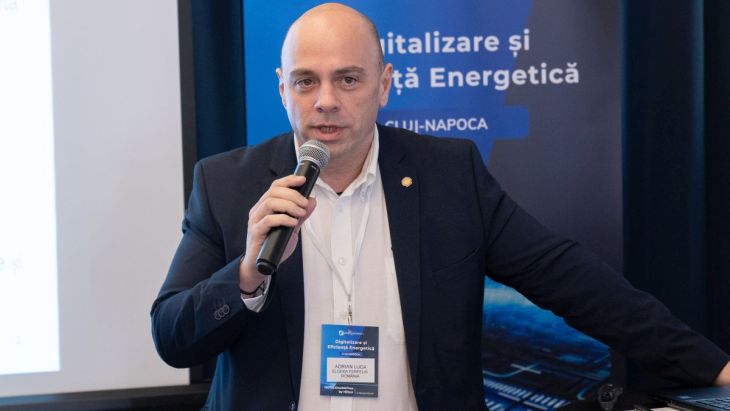Data traffic has increased dramatically in recent years, which is why there is a need for increasingly complex cooling systems for servers and data centres worldwide.
“In the pandemic, data traffic increased and data centers were overcrowded and needed cooling. In 2010, there were 8 zetabytes of data in the world and now there are over 180,000 zetabytes. That means a huge energy requirement,” said Adrian Luca, Team Leader Industry – Shell Lubricants Division, at Elgeka Ferfelis Romania, at the conference “Digitalization and Energy Efficiency – Cluj-Napoca”, organized by Energynomics.
Shell has developed a liquid immersion system as a form of data centre cooling, as a successor to air cooling, and estimates that the market for this system will reach 2.5 billion dollars annually by 2032.
Liquid immersion is a form of cooling in which the server is immersed in a non-conductive bath of liquid. Heat is transferred to the liquid without the need for other components such as heat sinks or fans.
DOWNLOAD THE PRESENTATION OF ADRIAN LUCA
In the first phase, heat is transferred from the processor to the liquid, causing it to boil and evaporate. In the second phase, the condenser turns the vapour into liquid which flows back into the immersion bath, starting the cycle again.
According to Luca, with this method, the carbon footprint is reduced by 30%, processor performance increases by 40%, while electricity consumption decreases by 25% and water consumption by 99%.
More about the concept of immersive cooling!
At the same time, such a system allows for an integration with consumers of hot water to benefit from the thermal agent produced with less additional costs.
The conference “Digitalization and Energy Efficiency – Cluj-Napoca” was organised by Energynomics with the support of our partners ADC, BCR, Elgeka Ferfelis, EnergoBit, Kawasaki Gas Turbine, Noark, Parapet, Photon Energy, Volt.
